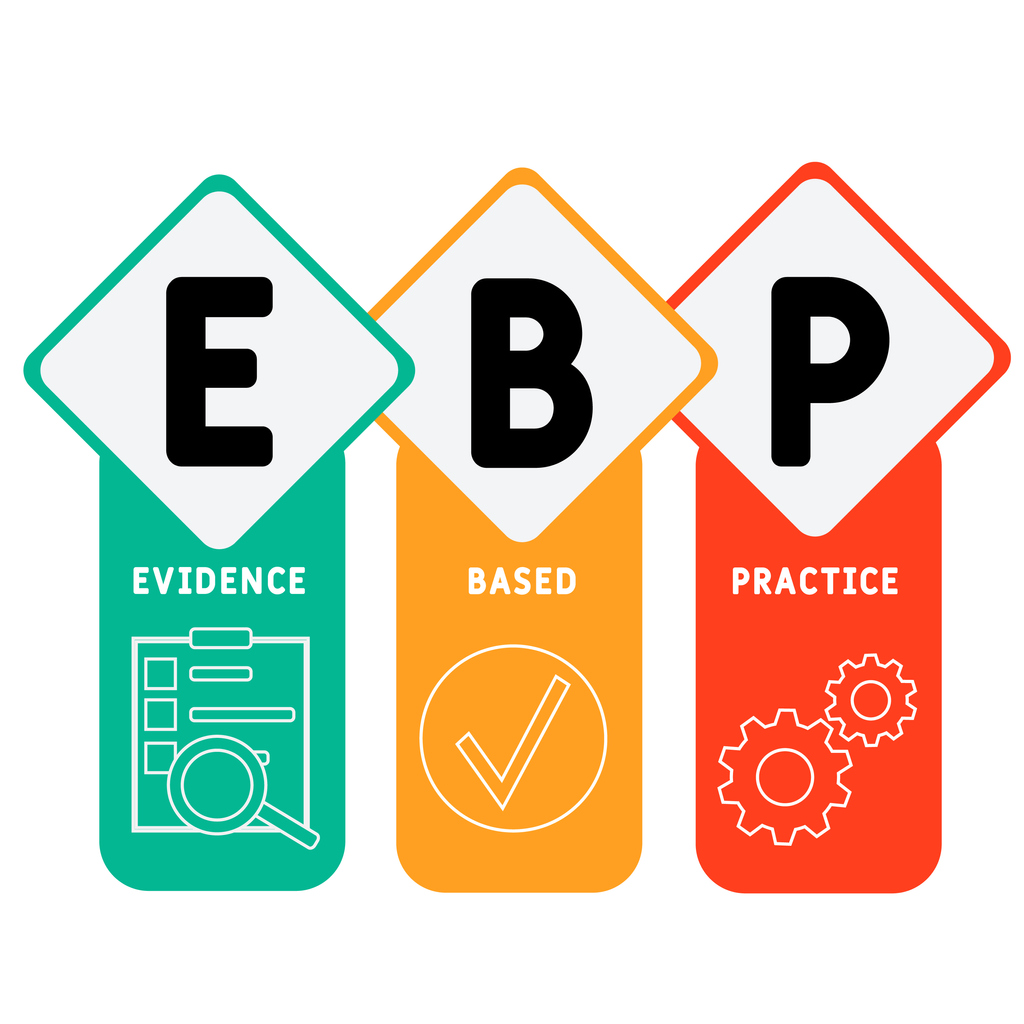Laurie's Blogs.
Jan 2024
Hung up on evidence-based physiotherapy practice

I was perusing a physio forum where a physiotherapy student was asking about evidence based physiotherapy practice. He was disappointed that on some of the student internships he had been on, that is preceptors were not practicing evidence based medicine. They were using modalities like interferential, techniques like dry needling, and using arthrokinematics glides as an example. He had come onto the forum to vent his concern and frustration.
He received a number of responses. The ones that were most poignant seemed to come from the seasoned physiotherapists. There are some that I think are worth sharing!
Meh, where I work it would fall under that umbrella. But does it really matter, we know these "glides" don't actually achieve anything other than a bit of pain relief and perhaps a transient increase in ROM. It basically has the same benefits as massage IMO. I like to think of these hands on techniques as simply a conversation with the nervous system, a way to decrease "sensitivity" and get shit to calm down. Patient will appreciate that, then you can start the conversation of getting them onto some exercises, advice on activity modification etc. etc. for a more long term solution.
I suggest keep an open mind, you remind me a lot of myself as a 2nd year student.
So yes unfortunately and confusingly, ‘calming down the nervous system’ through an individualised approach +- various individualised manual therapies and modalities, and of course education and advice on behavioural and perceptive change, is often more effective than structural approaches AND is very difficult to measure (studies) because of its individualised and differing self-perceptive nature.
We don’t fully understand how the brain, perceptive pain and musculoskeletal system interact well enough to carry out high level objective research to determine efficacy of many approaches. It’s likely that psychology plays a larger role, and ‘touch’ or manual therapy/modalities etc can help alter someone’s brains self-perception of their issue. Oh and of course we know.. getting stronger and moving more, helps both structurally but also psychologically.
EBM is defined as integration of the best research evidence with clinical expertise and patient value.
Meaning that evidence based practice isn't only built on what your teachers tell you nor is it based on the existence of plenty of watertight RCTs. You'll be surprised how bad some of the research is that we build our "raison d'être" on.
Sure that's one definition of evidence-based you could use but there are others. "The conscientious, explicit, and judicious use of current best evidence in making decisions about the care of individual patients" is another that's cited often (Jewell).
It’s incredibly difficult to develop a pragmatic study investigating the use of specific physiotherapy modalities, such as joint mobilisation. Doing a study where everybody gets DN at the upper trap for neck pain takes away from the patient centred model that we follow in practice. I don’t believe that the majority of the evidence can give a true indication of the effectiveness of a skilled clinician applying a individualised approach to their client in which they listen to the client and utilise the approach that they deem most appropriate.
Also, you mention that there’s not much evidence to supporting the use of many modalities over placebo. That doesn’t sound like an issue to me. Placebo itself is often demonised, when in fact, if it improves the clients quality of life then we should be embracing it.
Finally, if you’re getting down on this being a physio specific thing, then have a look into some of the medicine , nursing and even psych literature. There’s a paucity of evidence supporting some orthopaedic surgery and pain medications over placebo.
EBP is a 3 pillar structure that consists of scientific literature, patients preferences and clinical experience
With that being said, claiming that any modality is low evidence depends on a lot of different ways of how you view this, I just took a comprehensive course about research methodology and it led me to read a variety of articles and assess the structure of them essentially, some studies I’ve read are very faulty in certain aspects (data collection, sample selection, objectives etc…) which lead to false conclusion that the specific modality will be regarded as low evidence.
So you need to read between the lines and don’t settle with the abstract only in order to assess that by yourself
And put in your consideration that generally within the medical field some treatments are not dependent upon literature which will bring experience and patient’s preferences ahead of it.
I suggest to be more open minded and not take judgment easy mate, we’re all subjected to some sort of bias in this life.
The medical side of thinking is much more algorithmic when it comes to treatment.
When you have x condition use y medication. If y does not work, then use z. Notice I said treatment, not diagnosis because diagnosis still requires great skill.
In the MSK world, the quality of research just isn't there to support such an algorithmic response for treatment. As frustrating as that can be, especially for newer grads.
So there is no recipe book. Just what you learn in practice. The patterns you start to see and what works best for you.
You also have to remember that patient expectations and patient perception plays a HUGE roll if therapeutic effectiveness. Evidence based care has to take that into account.
I think it’s quite interesting really. It has been said that medicine (whatever discipline) is a mix of art and science. True. When I teach, I say, “if you presented a dog with a certain condition before a panel of professional experts, they would all approach treatment in a slightly different way. And none of them are inherently right or wrong.” We would test the treatment protocol, re-evaluate the outcome, and proceed from there, with the same strategy, a modified strategy, a new strategy, or a referral for further diagnostics.
Food for thought, anyways!
Reference:
https://www.reddit.com/r/physiotherapy/comments/10o8kxy/the_state_of_evidencebased_physiotherapy_practice/ (accessed Jan 17, 2024)


